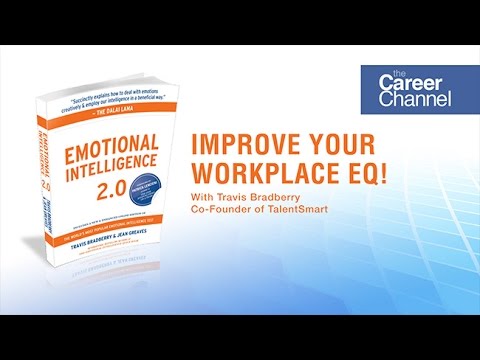Emotional Intelligence 2.0., the book written by Travis Bradberry and Jean Greaves, delivers a step-by-step program for increasing your EQ via four, core EQ skills that enable you to achieve your fullest potential: Self-Awareness, Self-Management, Social Awareness and Relationship Management.
Emotional intelligence is the ability to identify and manage your emotions, as well as the ability to recognize and influence the emotions of others. It’s also defined as the balance between the emotional and rational parts of your brain.
“As a business leader, emotional intelligence can help you keep your emotions in check and identify when your team members are frustrated, burnt out, dissatisfied, or feeling other emotions that could impact their work. And the higher your EI, the more likely you are to be successful in the workplace. In his research, Bradberry found high emotional intelligence among 90 percent of top performers, but only 20 percent of bottom performers.While the process for measuring a person’s IQ is relatively straightforward, developing an accurate assessment of someone’s emotional quotient (EQ) is a bit trickier and generally requires an honest self-evaluation,” wrote inc.com.
Moreover, accordingly Travis Bradberry, to emotional intelligence is the “something” in each of us that is a bit intangible. It affects how we manage behavior, navigate social complexities, and make personal decisions that achieve positive results. Emotional intelligence is made up of four core skills that pair up under two primary competencies: personal competence and social competence.
Emotional intelligence taps into a fundamental element of human behavior that is distinct from your intellect. There is no known connection between IQ and emotional intelligence; you simply can’t predict emotional intelligence based on how smart someone is. Intelligence is your ability to learn, and it’s the same at age 15 as it is at age 50. Emotional intelligence, on the other hand, is a flexible set of skills that can be acquired and improved with practice. Although some people are naturally more emotionally intelligent than others, you can develop high emotional intelligence even if you aren’t born with it.
“It’s a powerful way to focus your energy in one direction with a tremendous result. TalentSmart tested emotional intelligence alongside 33 other important workplace skills, and found that emotional intelligence is the strongest predictor of performance, explaining a full 58% of success in all types of jobs. Your emotional intelligence is the foundation for a host of critical skills—it impacts most everything you do and say each day. (….) Naturally, people with a high degree of emotional intelligence make more money—an average of $29,000 more per year than people with a low degree of emotional intelligence. The link between emotional intelligence and earnings is so direct that every point increase in emotional intelligence adds $1,300 to an annual salary. These findings hold true for people in all industries, at all levels, in every region of the world,” added Bradberry in his LinkedIn post.




















